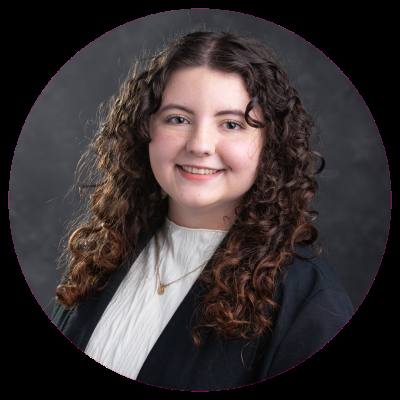In the upcoming May 7 election, Sugar Land City Council has two contested positions on the ballot, including two candidates for Position 1 and three candidates for Position 2. Mayor Joe Zimmerman is running for his fourth and final term unopposed. William Ferguson and Larry Lobue are running for Position 1, and Jennifer Lane, Preston Scott Schultz and Farha Ahmed are running for Position 2.
Candidate responses may have been edited for length and clarity.
With Sugar Land as the future home of University of Houston’s School of Technology, what are the next steps for positioning the city as a technology hub?
What's beautiful about this question is that it clearly identifies that Sugar Land is already doing the work to position the city as a technology hub. When our economic development team decided to incentivize the University of Houston to join our community, that began the development ultimately of what soon should be the school of technology. Working with our existing businesses and inviting new businesses, including universities, to be a part of our future is how we are already making the way for our city to be a technology hub.
What are the next steps for developing Sugar Land, despite the city being built out?
The city of Sugar Land is made up of just over 42 square miles. The vast majority of that has been developed. The only way to keep pace is to redevelop in creative ways. Our economic development team and our current rezoning has motivated and will motivate many development improvements, including business, residential and entertainment. We are currently doing the work utilizing committees and creative thinking. We are always preparing for the future by developing and monitoring 5- and 10-year plans.
With Fort Bend County home to the largest Asian demographic in the state, how do you plan on addressing the needs of Sugar Land’s diverse population?
The city of Sugar Land is and should always be an inclusive city. Our Asian neighbors are included in every aspect of our amazing city. With that said, our Asian neighbors are not waiting around to be included; they are making their home in Sugar Land for all to enjoy. Diversity is the superpower of Sugar Land. We have much to learn from our differences. Our cultural, religious, racial and economical differences are the bond that makes us stand out as a community.
With Sugar Land as the future home of University of Houston’s School of Technology, what are the next steps for positioning the city as a technology hub?
Expound on the city’s partnership with all departments, such as the CougAR (Augmented Reality) Laboratory, which is one of the top technology departments that can help our retail, medical, marketing, network, sports, etc., which will help the city move forward. I look forward to working with UH Sugar Land, [the] EDC and the city’s leaders to further redevelop and identify needs of our existing industries as well as bring new business to Sugar Land.
What are the next steps for developing Sugar Land—despite the city being built out?
Continue to work with our businesses in the city to develop multiple plans to redevelop and revitalize business in our communities. We must use our resources, technology and partnerships to help develop all businesses, current and future, with their technology, marketing and management.
With Fort Bend County home to the largest Asian demographic in the state, how do you plan on addressing the needs of Sugar Land’s diverse population?
Sugar Land is so diverse with a population over 100,000. I would continue to help develop and understand the infrastructure, inclusion and unification of all demographic involvement. I completely believe in inclusion; it takes everyone’s involvement with these goals to meet the needs successfully and continue to be the unified diverse city of Sugar Land.
With Sugar Land as the future home of University of Houston’s School of Technology, what are the next steps for positioning the city as technology hub?
Our economic development team works diligently to attract and retain businesses that will provide employment opportunities for the students of UH Sugar Land. [This is] ideally creating an ecosystem where employers partner with UH Sugar Land and align instruction that will provide businesses the cutting edge they need to be most successful. Sugar Land is the ideal location for serving as a launch pad for innovation and entrepreneurship.
What are the next steps for developing Sugar Land—despite the city being built out?
The city continues to focus on the development and redevelopment to keep Sugar Land a desirable place to do business and live. An evolving strategy is to provide more diverse housing options within the city within the optimum locations. The city works to respond to shifts in market demand and demographic trends and has identified industries that serve as our major employers to provide incentives for those businesses to further expand their offerings to the public and for our workforce.
With Fort Bend County home to the largest Asian demographic in the state, how do you plan on addressing the needs of Sugar Land's diverse population?
Sugar Land is an exceptional example of an inclusive community which promotes events across the city in efforts to provide a sense of belonging and pride to be a resident of Sugar Land. This same culture is true for our business community. We have so many ways for residents to connect, if it may be by enjoying our beautiful parks to attending a variety of entertainment venues, the residents of Sugar Land serve as a model to the nation of how people from various cultural backgrounds can live, play and prosper.
With Sugar Land as the future home of University of Houston’s School of Technology, what are the next steps for positioning the city as a technology hub?
I think it is a tremendous advantage for our community as well as surrounding communities.
What are the next steps for developing Sugar Land—despite the city being built out?
Continue the efforts to make Sugar Land a destination location and maintain our aging infrastructure.
With Fort Bend County home to the largest Asian demographic in the state, how do you plan on addressing the needs of Sugar Land's diverse population?
We do a great job of this through interactive programs, such as Sugar Land 101 and volunteer opportunities. We need to ensure we are continuing to reach out to all areas of our community to determine their needs and formulate appropriate responses; no one should ever feel they are being ignored or their need is unimportant.
With Sugar Land as the future home of University of Houston’s School of Technology, what are the next steps for positioning the city as a technology hub?
I support smart growth strategies to attract innovative businesses and professional careers in technology here in Sugar Land. Cities like Miami or Cheyenne are a beacon of how technology can foster growth and tap into diverse, homegrown talent, displaying an openness to technology and our business-friendly policies. I want this for Sugar Land. We will welcome tech collaborations, conferences and incubators supporting blockchain and cryptocurrency-related startups. SMART Growth will bolster existing businesses, increase tax base/revenue and maintain a robust local economy.
What are the next steps for developing Sugar Land—despite the city being built out?
As Sugar Land grows, smart growth and management are essential for developing our city and quality of life. From my city planning and zoning experience, our increasing demands require the city to adapt while being mindful that our city’s infrastructure is not over-stressed. Smart development includes revitalizing appropriate areas to adjust to the changing needs of residents’ businesses and incorporating various housing options for young professionals and downsizing families. We also must fund and prioritize public safety with growth, keeping our city safe.
With Fort Bend County home to the largest Asian demographic in the state, how do you plan on addressing the needs of Sugar Land’s diverse population?
Intentional and meaningful engagement is the key to addressing the needs of Sugar Land’s diverse population. In the last 30 years, I have worked actively in different communities to bring them together to better our city. I bring a unique perspective as a candidate of Asian descent and a businesswoman with a long record of community volunteering. City representation should unite communities and encourage international business opportunities. Sugar Land is a model to our state and country as a thriving city of diversity where we live, work and celebrate together.










